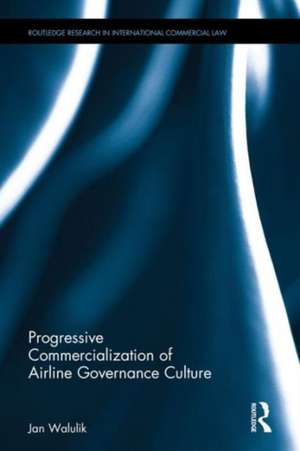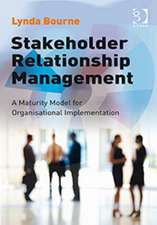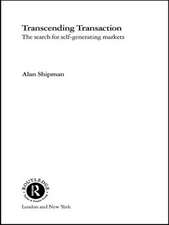Progressive Commercialization of Airline Governance Culture: Routledge Research in International Commercial Law
Autor Jan Waluliken Limba Engleză Hardback – 4 aug 2016
| Toate formatele și edițiile | Preț | Express |
|---|---|---|
| Paperback (1) | 301.33 lei 6-8 săpt. | |
| Taylor & Francis – iun 2018 | 301.33 lei 6-8 săpt. | |
| Hardback (1) | 849.78 lei 6-8 săpt. | |
| Taylor & Francis – 4 aug 2016 | 849.78 lei 6-8 săpt. |
Preț: 849.78 lei
Preț vechi: 1217.03 lei
-30% Nou
Puncte Express: 1275
Preț estimativ în valută:
162.60€ • 169.79$ • 134.27£
162.60€ • 169.79$ • 134.27£
Carte tipărită la comandă
Livrare economică 15-29 aprilie
Preluare comenzi: 021 569.72.76
Specificații
ISBN-13: 9781138654990
ISBN-10: 113865499X
Pagini: 292
Ilustrații: 6
Dimensiuni: 156 x 234 x 21 mm
Greutate: 0.57 kg
Ediția:1
Editura: Taylor & Francis
Colecția Routledge
Seria Routledge Research in International Commercial Law
Locul publicării:Oxford, United Kingdom
ISBN-10: 113865499X
Pagini: 292
Ilustrații: 6
Dimensiuni: 156 x 234 x 21 mm
Greutate: 0.57 kg
Ediția:1
Editura: Taylor & Francis
Colecția Routledge
Seria Routledge Research in International Commercial Law
Locul publicării:Oxford, United Kingdom
Public țintă
Postgraduate and UndergraduateCuprins
Introduction Part I Nation-Bound Governance 1. Premises of Aeronationalism 2. Development of the Airline Nationality Concept 3. Legal Structure of the Airline Nationality Concept 4. Business Consequences of Aeronationalism Part II The Erosion of Nation-Bound Governance 5. Destabilization of Airlines’ Governance Culture 6. Incoherence of the Airline Industry’s Environment 7. Private Solutions to the Conflicted Environment Part III Commercial Governance Culture 8. Deregulation of Airline Nationality 9. New Regulatory Safeguards 10. Challenges to Commercialization 11. Progressing Commercialization Conclusions
Descriere
This study analyses the transition of the airline industry from the not-for-profit nation-bound public utility model towards a profit-oriented globalized industry. It illustrates how legal, political, historical and cultural factors have shaped the corporate governance in the airline sector, and describes how these factors influence economic decisions and performance. The unique feature of the book is that the subject is consequentially discussed from the perspective of airlines’ governance culture. This approach links the examination of legal and policy factors which influence airline activities together with a discussion of economic issues, all within one clear, coherent and comprehensive framework.


























